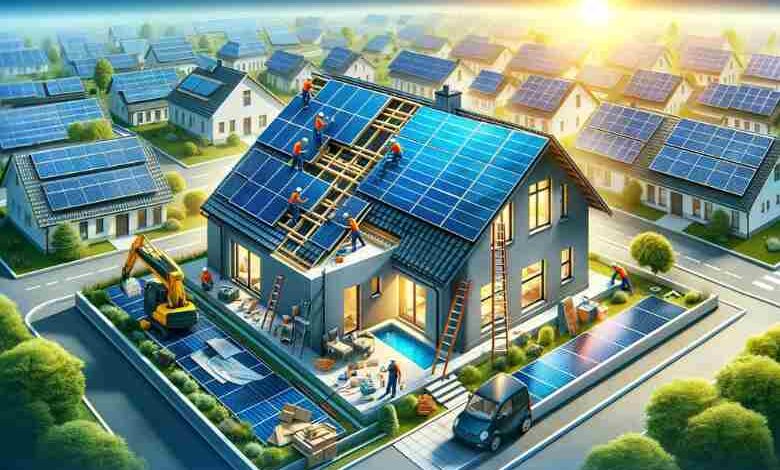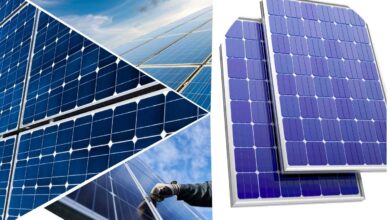
Adopting solar panels is considered a sustainable source of energy. However, many factors affect the cost of solar installation. So, for both homes and businesses, the expense should be weighed. We try to compare the differences between residential home and commercial building solar installation costs here, citing major factors determining these costs.
Understanding Solar Panel Costs
When deciding to have solar panels installed on a home or in commercial usage, the following variables will determine the overall commercial solar installation cost:
- System Size: The size of the solar panel system required has a great deal to do with the cost. Residential systems are smaller, usually 3 kW to 10 kW. Commercial systems can range from 10 kW to several megawatts, depending on energy needs.
- Type of Panels. Some may use monocrystalline, polycrystalline, or thin-film solar panels. Each type may affect the price. Monocrystalline is a bit more effective but costs more. These types are popular among residential and commercial installers.
- Installation will have a price, depending on the requirements. For example, a complex, high-geared setup for a complicated business system.
- Permits and Regulations: Local rules and permits raise installation costs for residential and commercial properties.
Residential Solar Installation Cost
A residential solar system installation generally costs in the range of $15,000 to $30,000. This again varies with the size of the system and the kind of panels used. A few factors that may add up to the cost are:
- Solar Installation: Many homeowners can earn incentives to reduce installation costs. These are federal, state, and local programs. For example, a number of them can even claim federal solar tax credit, part of which will be deducted from their federal taxes.
- Roof Type and Condition: The type and condition of the roof can contribute to costs. A well-built, easy-to-access roof can lower installation costs. But, roofs that need repairs or changes can raise costs.
- Energy Needs: One must calculate the total energy usage to determine a proper system size. An enormous system will, as a matter of course have more installation costs.
Cost of Commercial Solar Installation
The cost of commercial solar installs will vary. Most are between $100,000 and a few million. There are several contributing factors, including:
- Big solar systems exist for a reason. They supply a facility with a huge amount of electricity. This comes with a significantly higher total price tag in natural progression. Economy of scale typically drowns the cost per watt out at higher levels.
- Financing Options: They include power purchase agreements and solar leases. They may change the initial costs and long-term savings. This would spread over time. It would help manage the budget and let the business reap benefits.
- Installation Location: A commercial building’s location may affect costs. This is due to labor rates, permit fees, and possible rebates. Businesses in cities may be more expensive than those in rural areas.
Additional Factors to Consider
When thinking about installing solar panels for homes or commercial properties, long-term benefits over the cost of installation need to be considered. The utility savings will quickly stack up to become a good savings factor over time often covering the cost of installation. Also, solar energy cuts carbon footprints. This appeals to eco-conscious consumers and businesses.
Moreover, most states have policies that are favorably friendly to the growth of solar energy. For example, considering the net metering policy would help. It would allow businesses and homeowners to earn credits for their excess energy. This would hence make the more financially feasible investment from a solar source.
Conclusion: The Right Choice
The cost of installing solar panels between homes and commercial buildings has to be compared in terms of their specific needs. Homeowners have many incentives. They usually start with a lower upfront cost. Businesses will pay more due to larger, complex systems. But, they will save a lot on energy bills in the long run.
It’s a step forward for saving money, protecting the planet, and boosting energy independence for homes and businesses. Knowing the cost of solar panel installation will help you. It will guide you to a decision based on your energy needs and future budget.





